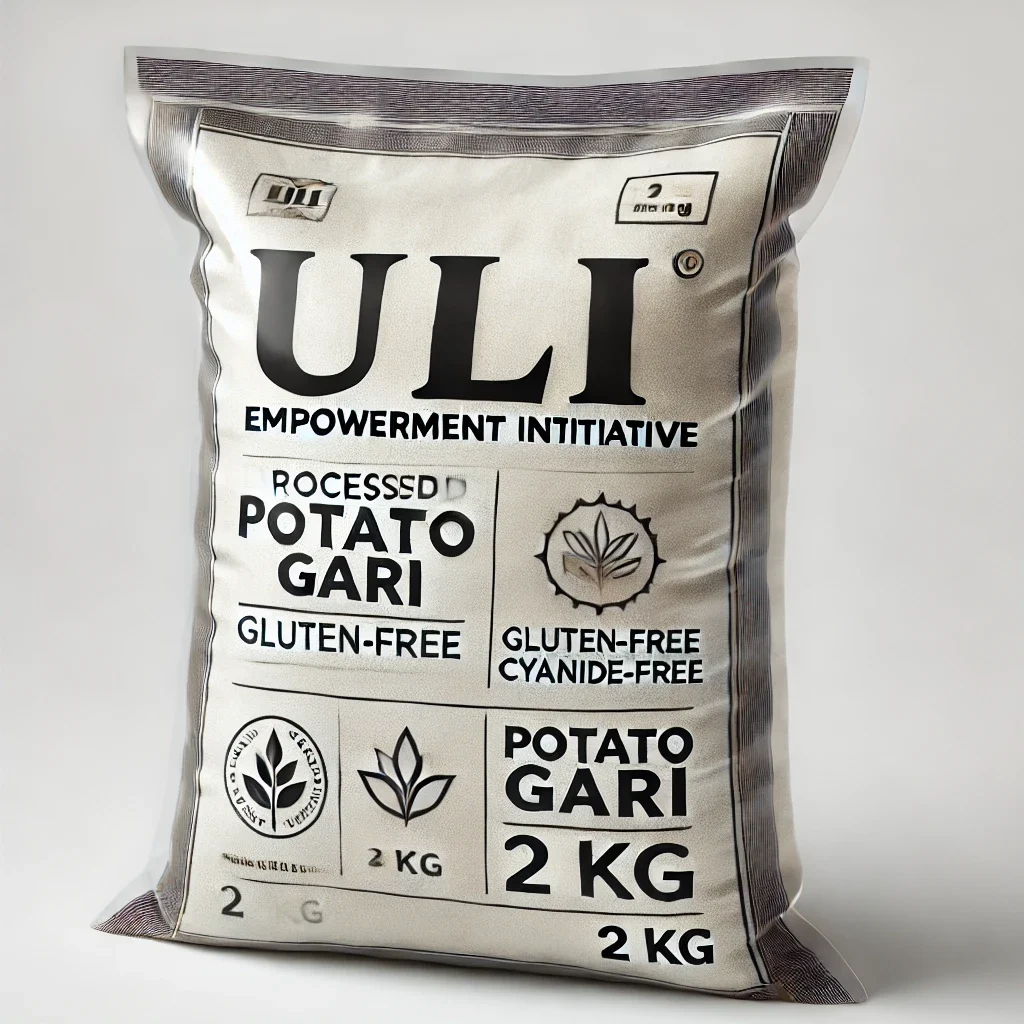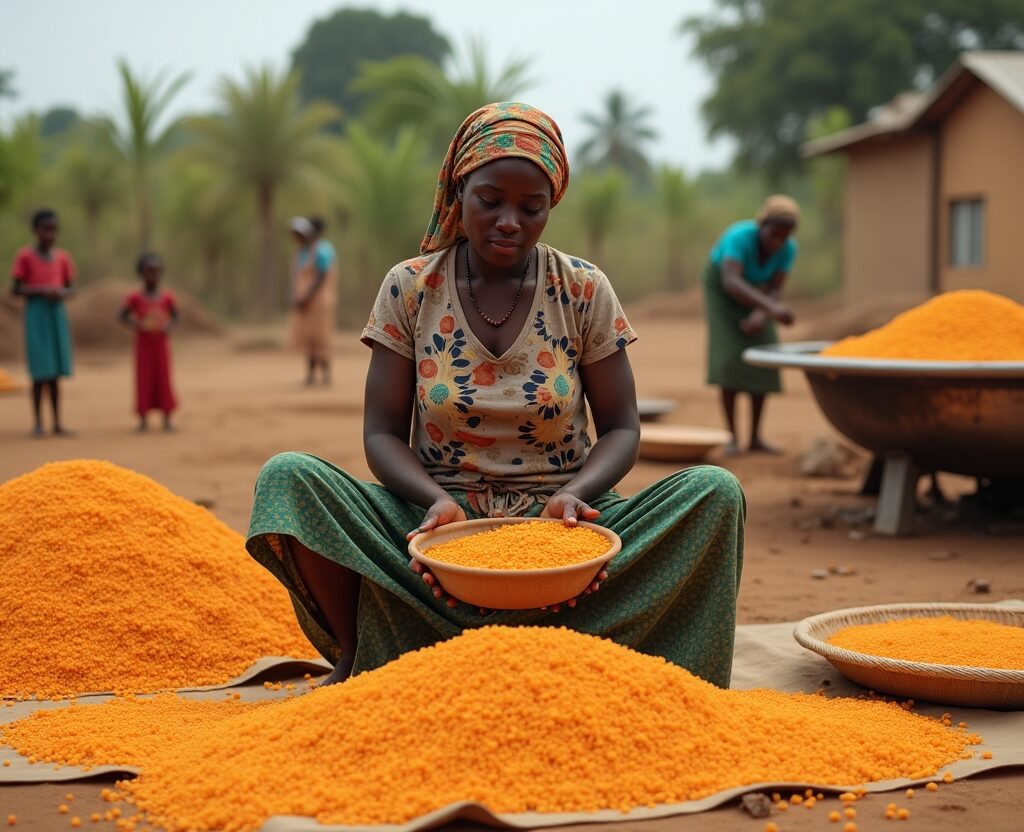WHY SWEET POTATO GARI MIGHT BE AFRICA’S NEXT SUPERFOOD

In a small farming village in Southern Kaduna, a group of women gathers around a fire, stirring a large pan filled with golden granules. It looks like ordinary gari—but it’s not. This is Sweet Potato Gari, a nutritious innovation slowly finding its place on the plates and in the pockets of rural farmers and urban families alike.
At Uli Empowerment Initiative, we’re passionate about uncovering opportunities where others see challenges. In today’s economic downturn, food inflation, and rising unemployment in Nigeria, agricultural entrepreneurship has become more than just a means of survival—it’s a tool for transformation.
🍠 What Makes Sweet Potato Gari So Special?
Most people are familiar with gari made from cassava. It’s a staple food, loved for its convenience and energy content. But Sweet Potato Gari—especially when made from orange-fleshed sweet potatoes—offers something more: nutrition.
Unlike cassava, sweet potatoes are naturally rich in Vitamin A (beta-carotene), which is crucial for child development, immune health, and vision. They also contain more fiber, iron, and antioxidants, making this version of gari both healthier and more suitable for combating malnutrition in vulnerable communities.
It’s a superfood that grows in our backyard.
💡 A Hidden Market Opportunity
Surprisingly, Sweet Potato Gari is still relatively unknown in many Nigerian markets. That’s not a disadvantage—it’s an opportunity.
In urban centers, demand is growing for healthier, naturally fortified foods. School feeding programs and NGOs working on child nutrition are looking for local, nutrient-dense alternatives to traditional staples. Diaspora markets abroad are eager for African superfoods.
The best part? Sweet potatoes mature quickly—often in just 3 to 4 months. That means faster harvests, multiple cycles per year, and higher income potential for smallholder farmers.

💰 Investment Potential for Youth & Women
With basic training and low-cost equipment for washing, grating, roasting, and drying, rural communities can start small processing hubs for Sweet Potato Gari. Women and youth can process and package it for local sale or supply to health-focused buyers.
Imagine this: a young woman in a rural village, trained by Uli Empowerment Initiative, turns her half-hectare of sweet potatoes into branded bags of vitamin-rich gari, supplying to nearby schools. That’s not just food—that’s economic independence.
🌱 How Uli Empowerment Initiative is Supporting the Movement
Our vision is clear: empower the vulnerable through sustainable agricultural entrepreneurship. Sweet Potato Gari fits perfectly into this mission.
We are working to:
Train farmers—especially women and youth—in the production and hygienic processing of sweet potato gari.
Provide access to seed tubers, tools, and community-level processing units.
Promote the use of this nutritious alternative in local diets and school feeding programs.
Connect small producers to larger markets and health-focused consumers.
It’s about more than food. It’s about giving families a future, children a better start, and entrepreneurs a head start.
🌍 A Root Worth Digging Into
We believe Sweet Potato Gari is more than a trend—it’s a movement toward food security, better health, and economic sustainability in Nigeria and beyond.
So the next time you hear about sweet potatoes, don’t just think of boiling or frying. Think of innovation. Think of nutrition. Think of what’s possible when we turn the ordinary into opportunity.
📢 Ready to Get Involved?
Sponsor a youth-led sweet potato gari startup.
Donate equipment or seed tubers to a rural cooperative.
Partner with Uli Empowerment Initiative to bring this product to more communities.
Let’s plant hope. Let’s harvest change.
